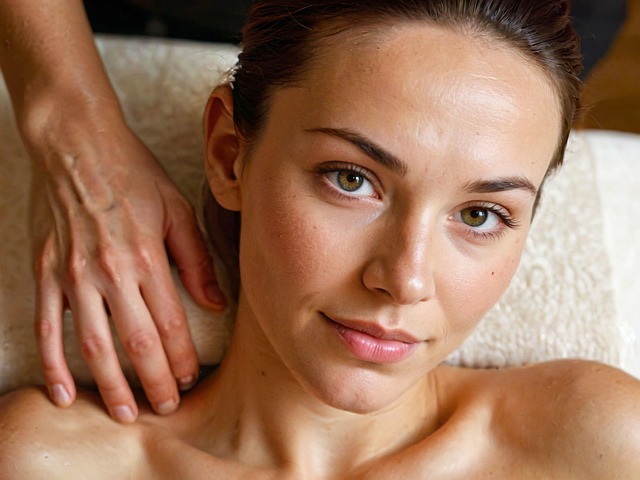Cold water immersion, like cold plunges or ice baths, is a natural way to boost endorphins and enhance mental wellness. This ancient practice triggers the release of 'feel-good' hormones, reducing stress, anxiety, and cortisol levels while promoting relaxation and calming effects. Regular cold exposures offer long-term benefits for managing stress-related disorders, improving sleep quality, and boosting energy levels through their positive impact on mental health. Incorporating cold water therapy into routines provides a sustainable strategy for optimal relaxation and stress relief.
Discover the powerful natural remedy that is cold water immersion and its profound impact on mental well-being. This article explores the science behind endorphins and their role in managing stress and anxiety, revealing how a cold plunge can be a game-changer for your mental health. We delve into the evidence supporting cold therapy for relaxation, offering insights into integrating this practice into your routine to combat daily stresses and foster a sense of calm. Uncover the benefits of cold plunges for stress relief and embrace a healthier mind.
Understanding Endorphins and Their Role in Mental Health
Endorphins, often referred to as “feel-good” hormones, play a pivotal role in our mental health and overall well-being. These neurotransmitters are naturally produced by our bodies and are known for their ability to create a sense of happiness, reduce pain perception, and induce relaxation. In the context of modern living, where stress and anxiety have become prevalent companions, understanding endorphins is more crucial than ever.
Cold water immersion, such as a cold plunge or ice bath therapy, has gained popularity as an effective method to boost endorphin levels. The sudden exposure to cold triggers a series of physiological responses in the body, one of which is the release of endorphins. This natural process can significantly enhance mood, reduce stress hormones, and promote a sense of calmness. For individuals seeking alternative ways to manage stress and anxiety, cold water therapy offers a unique and powerful approach, providing both immediate and long-term benefits for mental health.
Cold Water Immersion: A Natural Way to Boost Endorphin Levels
Cold water immersion, such as a cold plunge or cold shower, has emerged as a natural and effective way to boost endorphin levels and improve mental health. This ancient practice involves subjecting yourself to brief periods of cold exposure, typically between 10-60 seconds, in water temperatures ranging from 50-59°F (10-15°C). The immediate response of your body is a surge in endorphins, often referred to as “feel-good” hormones, which not only alleviate stress and anxiety but also offer significant mental health benefits.
The calming effects of cold plunges are well documented. When you immerse yourself in cold water, it triggers a response from your sympathetic nervous system, which prepares the body for physical activity or “fight or flight.” However, this response is quickly followed by activation of the parasympathetic nervous system, promoting relaxation and reducing symptoms of anxiety. Regular cold water therapy for mental health can enhance overall well-being, improve sleep quality, and provide a natural remedy for stress relief.
Scientific Evidence Behind Cold Plunges for Stress and Anxiety Reduction
The scientific community has increasingly recognized the potential therapeutic benefits of cold plunges and cold water therapy for mental health improvement, particularly in stress and anxiety reduction. Research suggests that exposure to cold water can trigger a cascade of physiological responses in the body, leading to enhanced mental well-being. One key mechanism is the release of endorphins, often referred to as ‘natural mood elevators’, which can significantly improve mood and reduce feelings of stress and anxiety. Cold water immersion also stimulates the vagus nerve, playing a crucial role in regulating emotions and promoting relaxation.
Numerous studies have explored the calming effects of cold plunges, indicating their potential as an effective tool for managing stress-related disorders. For instance, a study published in the Frontiers in Psychology journal found that participants who underwent short-duration cold water exposures reported decreased levels of anxiety and perceived stress afterward. Additionally, cold exposure therapy has been shown to decrease cortisol, often referred to as the ‘stress hormone’, which can contribute to feelings of anxiety and nervousness. These findings underscore the benefits of incorporating cold water immersion into routines as a natural and potentially powerful method for stress relief and enhancing mental resilience.
Integrating Cold Water Therapy into Your Routine for Optimal Relaxation and Mental Well-being
Integrating Cold Water Therapy into Your Routine for Optimal Relaxation and Mental Well-being
Cold water therapy, such as a cold plunge or immersion in icy water, has gained popularity for its profound effects on stress and anxiety reduction. The shock of cold water triggers a cascade of physiological responses, including the release of endorphins, often referred to as “feel-good” hormones, which can significantly enhance mental health and overall well-being. Regular cold water exposure offers a natural and effective way to combat the adverse effects of chronic stress and promote a sense of calm.
This simple yet powerful practice has been shown to reduce symptoms of anxiety and depression, improve sleep quality, and boost energy levels. The calming effects of cold plunges can be particularly beneficial for individuals seeking an alternative approach to manage their mental health. By incorporating this therapy into your routine, you’re not just providing a temporary fix but creating a sustainable strategy for optimal relaxation and stress management.
Cold water immersion emerges as a powerful, natural method to enhance endorphin production and significantly improve mental well-being. By embracing the therapeutic benefits of cold plunges, individuals can effectively manage stress and anxiety while fostering a sense of calm and relaxation. Integrating this ancient practice into modern routines holds immense potential for optimizing mental health and cultivating a resilient, balanced mind.
